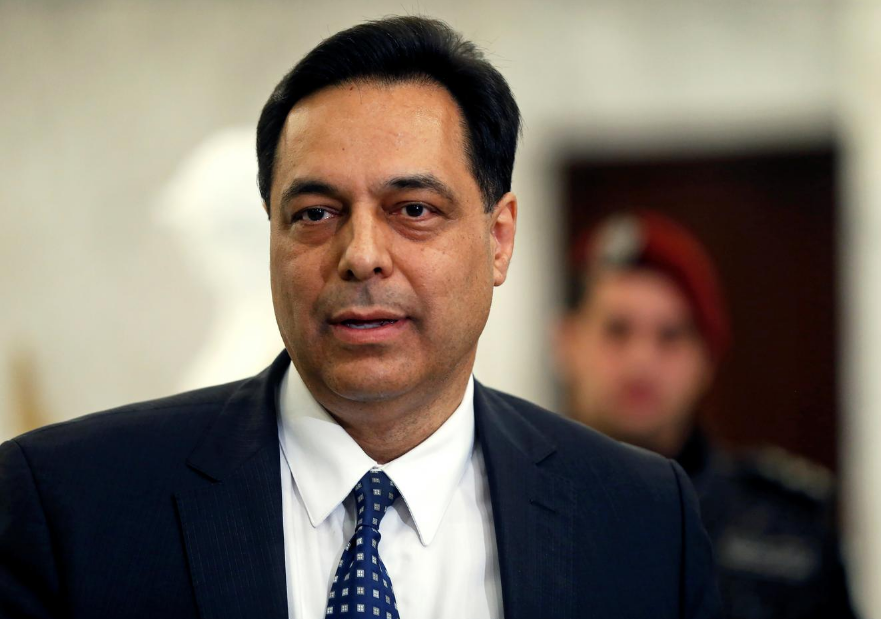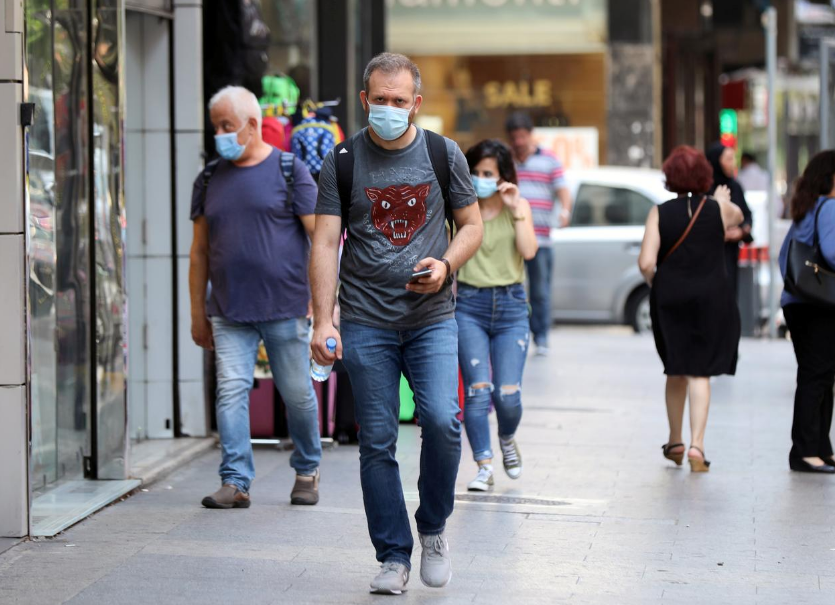
Lebanon's caretaker Prime Minister Hassan Diab says the country was at risk of losing its control over the country's coronavirus outbreak after a spike in the number of cases following the massive explosion in Beirut on Aug 4. /Reuters
Lebanon's caretaker Prime Minister Hassan Diab says the country was at risk of losing its control over the country's coronavirus outbreak after a spike in the number of cases following the massive explosion in Beirut on Aug 4. /Reuters
Lebanon's caretaker Prime Minister Hassan Diab said on Wednesday the country was at risk of losing its control over the country's coronavirus outbreak after a spike in the number of cases following the massive explosion in Beirut on August 4.
"The number of cases is increasing greatly, and if this continues, we will lose control of this epidemic," Diab was cited as saying in a statement issued by the Supreme Defense Council.
Lebanon registered 525 new COVID-19 infections and 12 deaths on Tuesday. The country experienced a spike in infections following the catastrophic explosion in the capital city at the start of the month. Cases doubled in the two weeks following the blast, as infections spread in hospitals where victims were being treated, medics say.

File photo: People walk as they wear face masks to prevent the spread of the coronavirus disease (COVID-19) in Beirut, Lebanon July 28, 2020. /Reuters
File photo: People walk as they wear face masks to prevent the spread of the coronavirus disease (COVID-19) in Beirut, Lebanon July 28, 2020. /Reuters
The government imposed a partial lockdown last Friday to help combat community spread. But the shutdown, which includes a curfew from 6 p.m. to 6 a.m., still allows for clearing rubble, making repairs and giving out aid in neighborhoods damaged by the explosion. The airport will remain open, with travelers having to take PCR tests before boarding and on arriving in the country.
The health minister for Lebanon's caretaker government, Hamad Hassan, who also spoke to the Council, said the tally of coronavirus cases was concerning. Hassan added that hospital capacity needed to be increased to help combat the spike in cases, the official said.
Meanwhile, merchants and business owners in Lebanon said they are trying to defy a coronavirus lockdown order since they can no longer afford to keep their businesses shut amid a deepening economic crisis. From August 21 on, Lebanese authorities had imposed a 17-day lockdown to contain the spread of the coronavirus pandemic after the number of confirmed infections spiked through Beirut. However, the nation's economy crisis has plunged more than half of the population into poverty.
(With input from agencies)